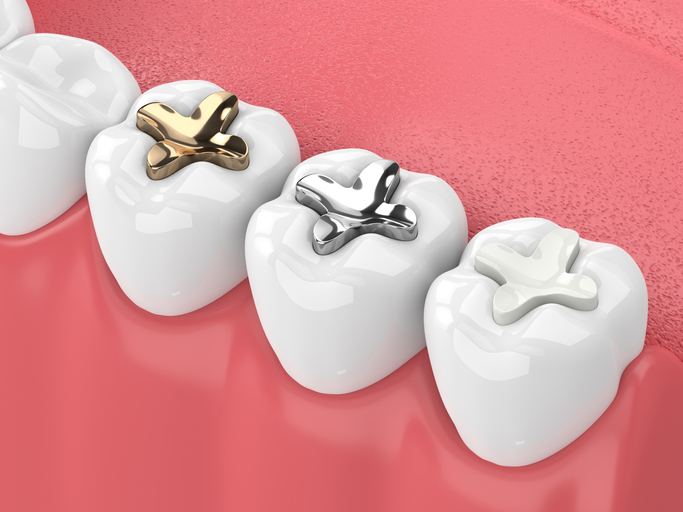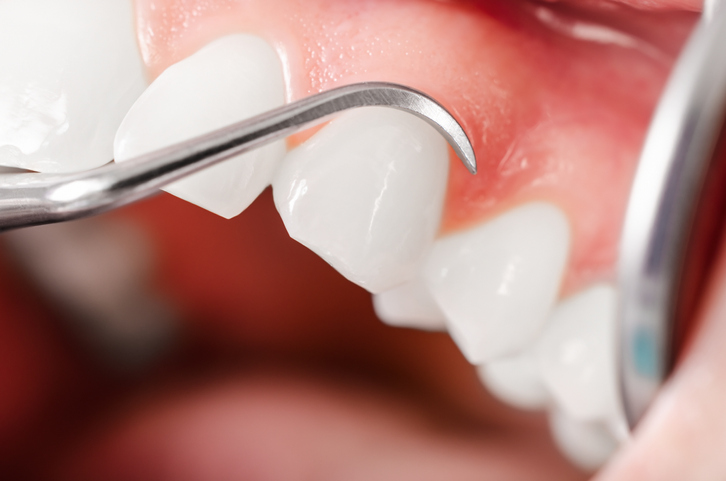-
What to Do About Common Denture Problems

Dentures can be an excellent way to replace missing teeth, although they won’t prevent jawbone density loss the way implant dentistry can. There can be a bit of a learning curve for new denture wearers. The more you wear them, the sooner you’ll get accustomed to their presence in your mouth. However, you shouldn’t hesitate to reach out to your dentist if you think your dentures don’t fit properly.
Denture Slippage
Slippage is a common problem, especially among new denture wearers. It can happen because you aren’t yet accustomed to holding your dentures in place with your tongue and cheek muscles. When your dentures slip out of place, you can gently bite them back into the right position. Your dentist may recommend using a tiny amount of denture adhesive. However, this isn’t intended to be a long-term solution. If your dentures continue to slip out of place while you talk or eat, it’s time for a dentist appointment. The oral appliance may need to be adjusted if it doesn’t fit properly.
Mouth Irritation
New denture wearers often complain of mouth irritation. Gum and mouth irritation can be caused by improperly fitting dentures or by poor oral hygiene. Try the following tips to relieve your mouth irritation:
- Take your dentures out before you go to bed.
- Massage your gums gently to boost blood circulation.
- Follow your dentist’s oral hygiene and denture care recommendations.
Mouth Infections
Taking good care of your dentures can help reduce the risk of infections such as stomatitis and cheilitis. Many new denture wearers find that they have trouble adjusting to their new oral care routine. It can be helpful to do things in the same order every time. Use the following tips:
- Lay a hand towel on the bathroom counter before removing your dentures, just in case you drop them.
- Use a commercial denture cleaner or mild dishwashing liquid.
- Avoid using regular toothpaste to clean your dentures.
You’ll find complete denture care services at Glenwood Premier Dental. Our highly trained dentists in Hazlet also offer implant dentistry to patients who prefer a permanent solution for missing teeth. New and current patients can get in touch at (732) 264-4477.
-
Should You Replace Old Fillings?

Fillings enable the preservation of the structure of a tooth that has been affected by tooth decay. For decades, silver amalgam fillings were the gold standard. Unfortunately, these have significant drawbacks, such as an unsightly appearance. If you still have these old fillings in your mouth, consider talking to your dentist about whether you should replace them. Your dentist can remove the old fillings and apply a cosmetically appealing composite material instead, which will blend in seamlessly with your natural teeth.
Dental fillings aren’t permanent.
Dental fillings can last for years. However, they aren’t necessarily a permanent solution for a tooth damaged by decay. Over the years, the accumulated stress of biting, chewing, and teeth grinding can cause a dental filling to fail. When you get your routine exam and dental X-rays, your dentist will check your old fillings for signs of failure. He or she may recommend replacing them if they show signs of wear and tear.
Damaged fillings can encourage bacterial growth.
One reason why it’s important to replace failing fillings is because they enable the growth of bacteria in your mouth. As a filling becomes chipped or worn away, it creates small hiding spaces for bacteria. It’s possible for the bacteria to enter the tiny spaces between the filling and the tooth, where they are virtually impossible to remove with a toothbrush. This can result in tooth decay, and so it’s important to get the old, damaged fillings removed and replaced.
Silver amalgam fillings contain trace amounts of mercury.
Silver amalgam fillings are made with a blend of mercury, silver, tin, and copper. Mercury is highly toxic to human health and is known to cause many medical problems, including kidney problems. While evidence is inconclusive as to whether mercury in dental fillings is a concern, many patients prefer to remove them, if only for peace of mind.
At Glenwood Premier Dental, it’s our mission to help our patients enjoy a smile that is both healthy and beautiful. If you’d like to replace your old fillings or if you’re in need of another dental restoration, give us a call at (732) 264-4477. Our cosmetic dentistry practice in Hazlet is conveniently located on Bethany Road.
-
What Causes Recurring Gum Abscesses?

An abscess is a pocket of infection. It develops when pus and other infected debris accumulate within an area that is walled off from surrounding tissues. It’s essential to get to a dentist as soon as possible if you think you might have a gum abscess. Left untreated, the infection can spread and get worse. Only a dentist can give you an accurate diagnosis. However, if you continue to get gum abscesses, it may be due to untreated periodontal disease. Periodontal disease is a bacterial infection characterized by inflamed, tender gums.
A related cause of recurring gum abscesses is the existence of deep periodontal pockets. A periodontal pocket refers to the space between the gum and the tooth. If periodontal disease is left untreated, it will get worse, causing the gums to pull away from the teeth and form a pocket. The pocket becomes a trap that holds bacteria in place, potentially leading to an abscess.
Glenwood Premier Dental offers preventive and emergency dentistry services in Hazlet. To request our next available appointment, call our friendly office staff at (732) 264-4477.
-
Surprising Facts About Teeth
Did you know that a Canadian dentist once paid more than $36,000 to acquire one of John Lennon’s teeth at an auction? Find out why when you watch the accompanying video. You’ll also learn other surprising facts about teeth. For example, before the first toothpaste was created and sold in 1873, people typically cleaned their teeth with charcoal or a mixture of ground chalk.
This video also offers some facts about wisdom teeth and explains why frequent snacking is more harmful for your oral health than eating sizable meals. You’ll also learn how your dentist can tell if you’re at risk of diabetes or heart disease just by looking at your teeth.
For complete dentistry care in Hazlet, you can contact Glenwood Premier Dental at (732) 264-4477. Our friendly dentists pride themselves on clinical excellence and judgment-free patient education.
